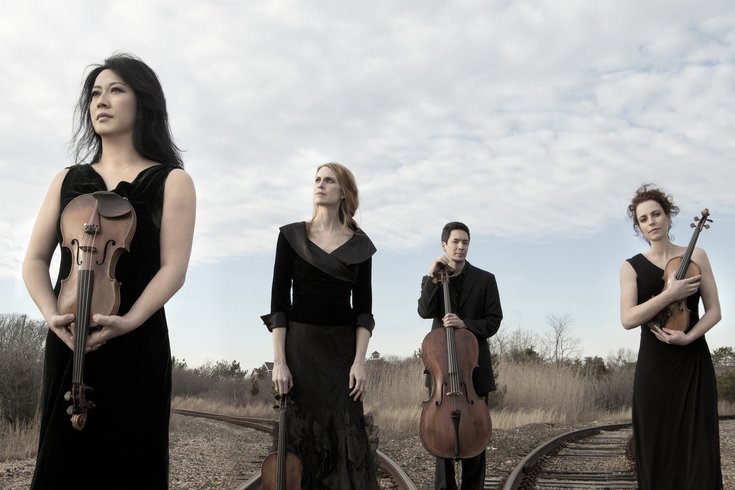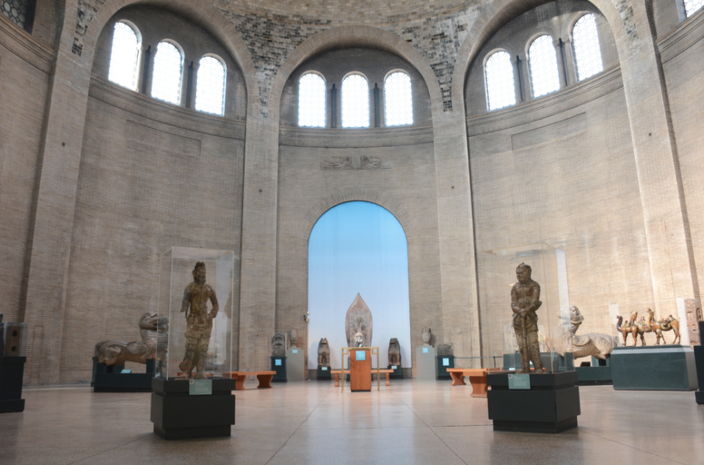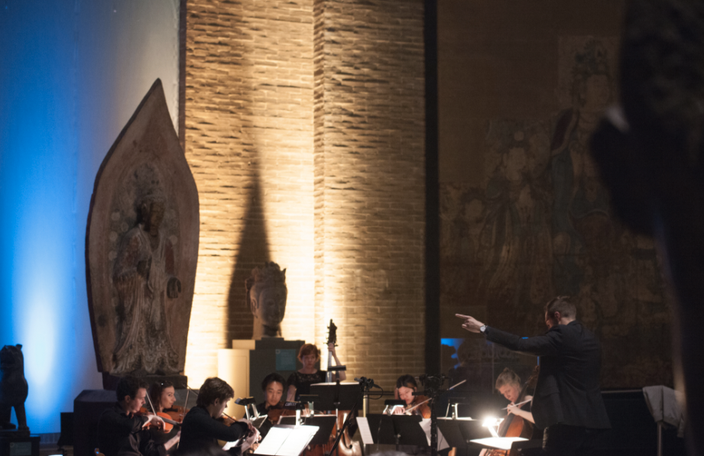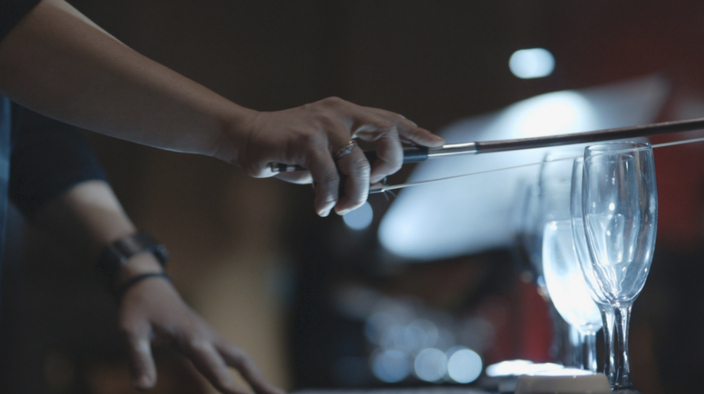
January 13, 2017
 Submitted photo/for PhillyVoice
Submitted photo/for PhillyVoice
The program’s centerpiece is composer George Crumb’s 1970 masterwork “Black Angels,” which employs extended techniques, electronic amplification, chanted vocals and unusual instrumentation (wine glasses, thimbles, paper clips) to evoke the haunted mood of Vietnam-era America.
As a visual spectacle, Penn Museum’s Chinese Rotunda is stunning – 90 feet around with a soaring 90-foot dome overhead, with millennia-spanning artworks interspersed throughout the space.
Open your mouth in the space, though, and it’s another story. The same majestic, cavernous qualities that make the rotunda so striking to the eyes, also make it a nightmare for the ears.
“It’s a big challenge, so you need to be willing to take that on.”
Friday, the acclaimed and inventive string players of the Daedalus Quartet confront that challenge as they perform a program titled, “Black Angels and Secrets,” against the backdrop of the Chinese Rotunda. While more traditional chamber music might get swallowed by the space, Daedalus’ program has been carefully chosen to work with, not against, the daunting acoustics.
The program’s centerpiece is composer George Crumb’s 1970 masterwork “Black Angels,” which employs extended techniques, electronic amplification, chanted vocals and unusual instrumentation (wine glasses, thimbles, paper clips) to evoke the haunted mood of Vietnam-era America.
“George says the piece is intended to produce a highly surrealistic effect,” Daedalus violinist Min-Young Kim explained, “and the acoustics of the Rotunda can help with creating that effect. Without being overtly religious, it definitely evokes a spiritual atmosphere that harkens back to ancient times. All the ritualistic stuff in ‘Black Angels’ can feel a little artificial in a concert hall, but it really fits that space.”
Crumb seemed to be courting bad luck when he finished his 13-movement piece on Friday, March 13 of 1970, subtitling it “Thirteen Images from the Dark Land.” For superstitious listeners, the threat will be doubled this weekend, when Daedalus performs the piece on another Friday the 13th almost a half-century later, when global events seem equally dark.
“I don’t think Crumb would say that ‘Black Angels’ is a protest piece, but I think he was drawing on the need to acknowledge the darkness and to find some possible catharsis and hope in that darkness.”
In addition to “Black Angels,” Daedalus will perform two new pieces also chosen to meet the Rotunda’s aural challenges. The world premiere of Penn Ph.D. candidate Joshua Hey’s “lens flare from Alpha Centauri,” which avails itself of the amplification in place for “Black Angels,” will open the program.
Philadelphia composer Scott Ordway’s “Tonight We Tell the Secrets of the World” was written expressly for the space, as part of a Penn Museum commission sponsored by the American Composers Forum. The “whisper play,” which was premiered last year, calls on the audience to whisper texts translated from throughout the museum’s collections.
The piece fits with Daedalus’ work as string quartet in residence at the University of Pennsylvania, where the 87-year-old Crumb is professor emeritus. In addition to their work with Penn music students, they’ve visited a class on translation, where they likened the act of bringing a piece of music from notation to reality to translating from one written language to another.
“If people miss the written words on the text panels in the exhibitions, they may miss the power behind the objects,” she said.
“These performances are just a different way of telling our stories, and, in some ways, a more powerful one than words will ever be.”
The Daedalus Quartet – like many of their peers in the younger generations of chamber music performers – have a similar motive in taking their music out of concert halls and into less traditional venues. Friday’s concert will add another visual component with dramatic lighting and shadow-puppetry by local theater artist Sebastienne Mundheim, who staged her version of Aeschylus’ “The Eumenides” in the Rotunda during last year’s Fringe Festival.
“We hope to bring in a more diverse audience than we might in a traditional chamber music concert,” said Kim.
“As a string quartet, we’re not that mobile, so this adds another visual dimension, while letting the audio remain the predominant experience. The Chinese Rotunda is just a cool space in the first place, and it opens itself in a theatrical way.”


